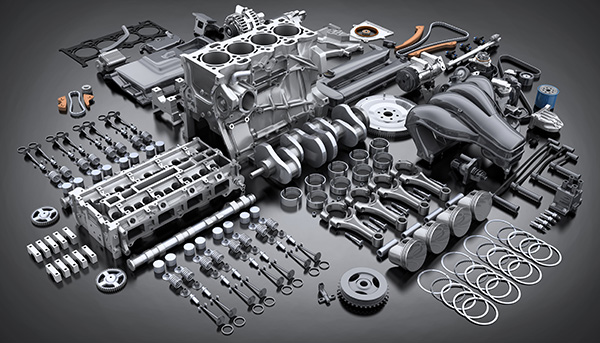Posted on 12/19/2025

A lot of drivers think about engine oil and brake pads, but almost never think about the fluid that actually moves the brakes. Brake fluid works quietly for years, then one day the pedal feels softer, the light comes on, or a line rusts out. Since this fluid literally transfers the force that stops your car, it deserves more attention than it usually gets. What Brake Fluid Actually Does When You Press the Pedal When you press the brake pedal, you are not directly squeezing the pads with your foot. You are pushing a piston in the master cylinder, which pressurizes brake fluid in sealed lines. That pressure travels through the fluid to calipers or wheel cylinders at each wheel, clamping the pads against the rotors or shoes against the drums. Because brake systems rely on pressure, the fluid has to be stable and incompressible. Fresh fluid gives you a firm, predictable pedal and consistent stopping power. As it ages and becomes contaminated, it starts to behave less li ... read more
Posted on 11/28/2025

Choosing parts is about more than price. The best replacement restores original performance, fits correctly the first time, and lasts through real-world driving. Here is how a smart parts decision gets made so repairs hold up and budgets stay predictable. What “Right Part” Actually Means The right part matches three things: fit, function, and specification. Fit means the mounting points, connectors, and clearances are exact. Function means the part performs like the original across temperature, load, and duty cycle. Specification means it meets the approvals the vehicle was designed around, from filtration and friction ratings to electrical output and software compatibility. When all three align, the result is reliable repair and fewer comebacks. OEM, OEM-Equivalent, and Aftermarket: How We CompareOEM (Original Equipment Manufacturer) Built to the automaker’s print. Strong choice for complex electronics, emissio ... read more
Posted on 10/31/2025

Fuel economy usually stays fairly steady unless something changes. So when you notice you're visiting the gas station more often than usual, and your driving routine hasn’t changed, that’s a sign your car might need attention. A sudden drop in MPG is more than just a budget concern. It’s often your car’s way of letting you know something’s not working as it should. Let’s take a closer look at what could be behind that fuel efficiency loss and what you can do about it. When MPG Starts Dropping Without Warning Sometimes the first clue is just a feeling. The tank doesn’t seem to last as long. The fuel gauge dips faster. If your vehicle has a trip computer, you might notice that the average MPG number has dropped by several points. Here are some other signs that often come along with it: Engine feels sluggish or rough Fuel smell near the vehicle after shutting it off Engine light is on Acceleration takes more effort Ro ... read more
Posted on 9/26/2025

Getting stuck in stop-and-go traffic is frustrating enough. But if your temperature gauge starts rising or steam appears from under the hood, things can quickly turn stressful. In a city like Houston, where traffic is common and heat lingers for much of the year, an overheating engine isn't unusual. What matters most is how you respond. Knowing what to do in the moment and what to check afterward will help you avoid long-term damage and expensive repairs. How to Tell When Your Car Is Overheating Some warning signs are subtle, like a temperature needle creeping toward the red. Others are more dramatic, including visible steam, strange smells, or warning lights on the dashboard. You might even notice the air conditioning suddenly stops blowing cold. When any of these signs appear, take them seriously. Continuing to drive while the engine is overheating can lead to warped cylinder heads, blown gaskets, or complete engine failure. What to Do When It Happen ... read more
Posted on 8/29/2025

When you first learn to drive, instructors emphasize keeping both hands on the wheel. This habit isn’t just about passing a test. It’s about maximizing control of your vehicle. Driving with one hand may feel casual or convenient, but it compromises stability and increases the likelihood of delayed reactions in the event of an unexpected occurrence. The Dangers of One-Handed Driving With only one hand on the wheel, you limit your ability to make precise adjustments. A quick swerve to avoid a pothole or sudden movement from another driver is harder to manage when your grip and leverage are reduced. In emergencies, those few seconds of slower reaction can be the difference between a close call and a collision. One-handed driving also tends to encourage distractions, like resting your arm on the console or holding a phone, which only adds to the risks. Proper Hand Positions for Maximum Control Most safety experts recommend the 9 and 3 o&rsq ... read more